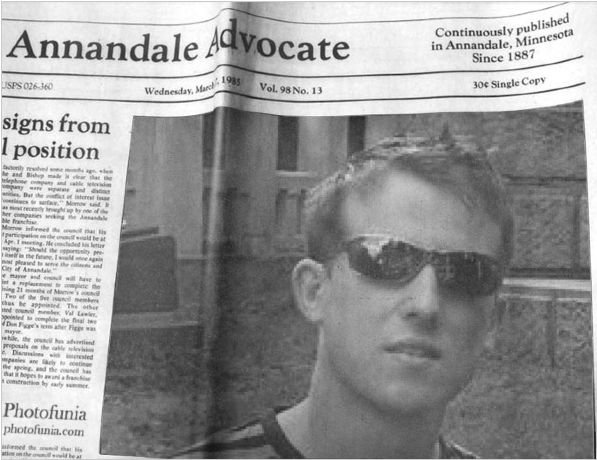
Serge Gainsbourg (1928 – 1991) was a French singer-songwriter, actor and director. Gainsbourg's varied musical style and individuality made him difficult to categorize. His legacy has been firmly established, and he is often regarded as one of the world's most influential musicians.
Before he was 30 years old, Gainsbourg was a disillusioned painter but earned his living as a piano player in bars.
By mid-1968, he fell in love with English singer and actress Jane Birkin whom he met during the shooting of Slogan. They gave birth to actress Charlotte (1971).
His early songs were influenced by Boris Vian and were largely in the vein of "old-fashioned" chanson. Very early, however, Gainsbourg began to move beyond this and experiment with a succession of different musical styles: jazz early on, pop in the 1960s, reggae in the 1970s, and electronica in the 1980s.
Many of his songs contained themes with a morbid or sexual twist in them. An early success, "Le Poinçonneur des Lilas", describes the day in the life of a Paris Métro ticket man whose job it is to stamp holes in passengers' tickets. Gainsbourg describes this chore as so monotonous that the man eventually thinks of putting a hole into his own head and being buried in another.
France Gall - Les Sucettes
More success began to arrive when, in 1965, his song "Poupée de cire, poupée de son" was the Luxembourg entry in the Eurovision Song Contest. Performed by French teen singer France Gall, it won first prize. (The song was covered in English as "A Lonely Singing Doll" by British teen idol Twinkle.)
His next song for Gall, "Les Sucettes" ("Lollipops"), caused a scandal in France: Gainsbourg had written the song with double-meanings and strong sexual innuendo, of which the singer was apparently unaware when she recorded it. Whereas Gall thought that the song was about a girl enjoying lollipops, it was really about oral sex.
In 1969, he released "Je t'aime... moi non plus," which featured simulated sounds of female orgasm. The song appeared that year on an LP, Jane Birkin/Serge Gainsbourg. Originally recorded with Brigitte Bardot, it was released with future girlfriend Birkin when Bardot backed out. While Gainsbourg declared it the "ultimate love song," it was considered too "hot"; the song was censored in various countries, and in France even the toned-down version was suppressed. The Vatican made a public statement citing the song as offensive. It reached no. 1 in the UK singles chart.
In 1975, he released the album Rock Around the Bunker, a rock album written entirely on the subject of the Nazis. Gainsbourg used black humour, as he and his family suffered during World War II. While a child in Paris, Gainsbourg had worn the yellow badge as the mark of a Jew. Rock Around the Bunker belonged in the mid-1970s "retro" trend.
The next year saw the release of another major work, L'Homme à tête de chou (Cabbage-Head Man), featuring the new character Marilou and sumptuous orchestral themes. Cabbage-Head Man is one of his nicknames, as it refers to his ears. Musically, L'homme à tête de chou turned out to be Gainsbourg's last LP in the English rock style he had favoured since the late 1960s. He would go on to produce two reggae albums recorded in Jamaica (1979 and 1981) and two electronic funk albums recorded in New York (1984 and 1987).
In Jamaica in 1978 he recorded "Aux Armes et cetera", a reggae version of the French national anthem "La Marseillaise", with Robbie Shakespeare, Sly Dunbar, and Rita Marley. This song earned him death threats from right-wing veterans of the Algerian War of Independence who were opposed to certain lyrics. Bob Marley was furious when he discovered Gainsbourg made his wife Rita Marley sing erotic lyrics. Shortly afterward, Gainsbourg bought the original manuscript of "La Marseillaise". He was able to reply to his critics that his version was, in fact, closer to the original as the manuscript clearly shows the words "Aux armes et cætera..." for the chorus.
The next year saw him coin the nickname Gainsbarre, for himself in the song "Ecce Homo".
After a 13 year long turbulent relationship Jane Birkin left Gainsbourg. In the 1980s, approaching the end of his life, Gainsbourg became a regular figure on French TV. His appearances seemed devoted to his controversial sense of humour and provocation. In March 1984, while this was illegal and highly offending, he burned a 500 French franc note on television to protest against heavy taxation.
He would show up drunk and unshaven on stage: in April 1986, in Michel Drucker's live Saturday evening show with the American singer Whitney Houston, he exclaimed to the host (in English), "I want to fuck her." The same year, in another talk show interview he appeared alongside Catherine Ringer, a well known singer who in the past had appeared in pornographic films. Gainsbourg shouted, "You're nothing but a filthy whore, a filthy, fucking whore." Ringer scolded back, "Look at you, you're just a bitter old alcoholic. I used to admire you but these days you've become a disgusting old parasite."
Serge Gainsbourg and Whitney Houston
By December, 1988, while a judge at a film festival in Val d'Isère, he appeared drunk and in a rage at a local theatre where he was to do a presentation. While on stage he began to tell an obscene story about Brigitte Bardot and a champagne bottle, only to stagger offstage and collapse in a nearby seat. Subsequent years saw his health deteriorate. He had to undergo liver surgery - although he denied any connection to cancer or cirrhosis. His appearances and releases become sparser as he had to rest and recover in Vezelay. During these final years he released Love on the Beat, a controversial electronic album with mostly sexual themes in the lyrics, and his last studio album, You're Under Arrest, which was a collaboration with Larry Fast, presented more synth-driven songs.
His songs became increasingly eccentric during this period, ranging from the anti-drug "Aux Enfants de la Chance" to the duet with his daughter Charlotte named "Lemon Incest". This translates as "Inceste de citron", a wordplay on "un zeste de citron" (a tang of lemon). The title demonstrates Gainsbourg's love for puns (another example of which is Beau oui comme Bowie, a song he gave to Isabelle Adjani).
Gainsbourg died on 2 March 1991 of a heart attack. He was buried in Montparnasse Cemetery, in Paris. His funeral brought Paris to a standstill, and French President François Mitterrand said of him, "He was our Baudelaire, our Apollinaire... He elevated the song to the level of art."[14] His home at the well-known address rue de Verneuil is still covered in graffiti and poems.
Since his death, Gainsbourg's music has reached legendary stature in France. His lyrical brilliance in French has left an extraordinary legacy. His music, always progressive, covered many styles: jazz, ballads, mambo, lounge, reggae, pop (including adult contemporary pop, kitsch pop, yé-yé pop, '80s pop, pop-art pop, prog pop, space-age pop, psychedelic pop, and erotic pop), disco, calypso, Africana, bossa nova, and rock and roll. He has gained a following in the English-speaking world with many non-mainstream artists finding his arrangements highly influential.
One of the most frequent interpreters of Gainsbourg's songs was British singer Petula Clark, whose success in France was propelled by her recordings of his tunes. In 2003, she wrote and recorded La Chanson de Gainsbourg as a tribute to the composer of some of her biggest hits.
His lyrics are collected in the volume Dernières nouvelles des étoiles.
In 2005, the album Monsieur Gainsbourg Revisited was released by Virgin Records. The album consisted of specially-recorded English-language cover versions of Gainsbourg's songs, recorded by artists as diverse as Franz Ferdinand, Portishead, Placebo, and Michael Stipe.
"Love is blind and its stick is pink"
"L'amour est aveugle et sa canne est rose"
"Ugliness is in a way superior to beauty because it lasts."
"La laideur a ceci de supérieur à la beauté qu'elle ne disparaît pas avec le temps."
See also:
Singles:
Bonnie and Clyde
Comment te dire adieu
Couleur Café
Dieu fumeur de havanes
Élisa
Initials B.B.
Je suis venu te dire que je m'en vais
Je t'aime... moi non plus - Brian Molka and Placebo
La Javanaise
Poupée de cire, poupée de son
Pour un con
Sea, Sex and Sun
Jane Birkin's Biography
Charlotte Gainsbourg' s bio

No comments:
Post a Comment